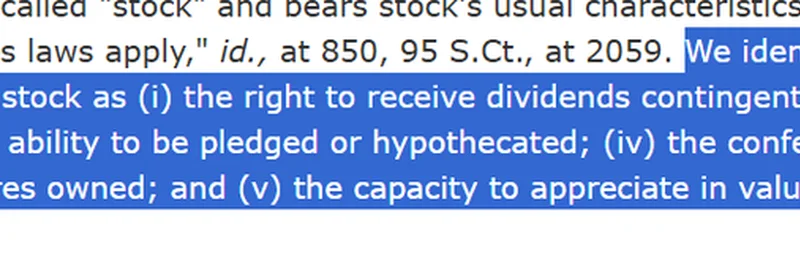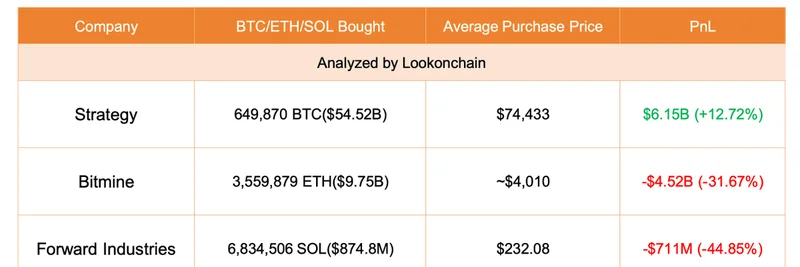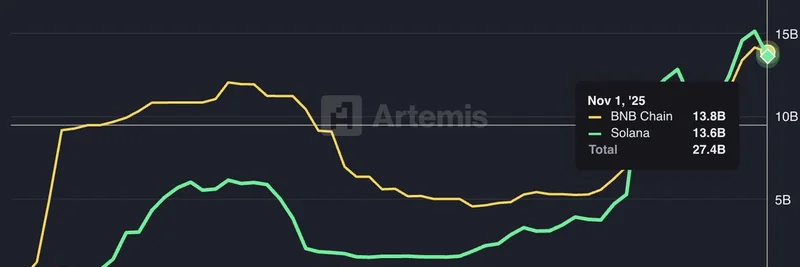In the fast-paced world of meme tokens, where creativity meets blockchain, it's easy to overlook the legal pitfalls that could turn your fun project into a regulatory headache. A recent tweet from cyberpunk lawyer and MetaLeX founder @lex_node sheds light on this, warning ICM'ers, BORGists, DUNAers, and other crypto enthusiasts about the nuances of U.S. securities laws beyond the infamous Howey test.
The tweet highlights a lesser-discussed aspect: tokens could be classified as "stock" under federal securities laws, based on the Supreme Court's decision in the Forman case (formally known as United Housing Foundation, Inc. v. Forman). While the Howey test is the go-to for determining if something is an "investment contract" – a catch-all category for securities – Forman provides a specific framework for what constitutes "stock."
Breaking Down the Five Forman Factors
According to the Forman ruling, courts weigh these five characteristics to assess whether an instrument qualifies as stock, focusing on its "economic reality" rather than just its label:
Right to Receive Dividends Contingent on Profits: If token holders get a share of the project's earnings or profits distributed as dividends, this screams "stock." In meme token land, think revenue-sharing models where holders get a cut from transaction fees or community funds.
Negotiability: This means the token can be easily transferred or traded. Most crypto tokens are designed for this – they're on exchanges like Uniswap or Solana DEXs – so this factor is often a given in the space.
Ability to Be Pledged or Hypothecated: Hypothecation is a fancy term for using the token as collateral for a loan or pledge. If your meme token can be staked, lent, or used in DeFi protocols as security, it ticks this box.
Voting Rights in Proportion to Shares Owned: Granting holders governance votes based on how many tokens they hold? That's straight out of the corporate stock playbook. DAOs often do this, but it could push tokens into securities territory.
Potential for Capital Appreciation: If the token's value is expected to rise based on the project's success or market hype, this applies. Meme tokens thrive on virality and community-driven pumps, making appreciation a core feature.
As @lex_node points out, these factors aren't a strict checklist – not all need to be present, and it's a disjunctive test where economic substance matters most. If your token hits several of these, regulators like the SEC might view it as stock, triggering registration requirements and potential enforcement actions.
Why This Matters for Meme Tokens
Meme tokens often start as jokes or cultural phenomena, like Dogecoin or newer entrants inspired by internet trends. But as they evolve, adding utilities like governance, revenue shares, or DeFi integrations can inadvertently mimic stock features. The tweet emphasizes that the Howey test is just the "fallback" – if your token looks and quacks like stock, it might be treated as such.
For projects like those at @MetaLeX_Labs, the goal is balance: empowering token holders with checks and balances without fully crossing into stock territory. If you want stock-like features, @lex_node suggests tokenizing actual stock instead, which aligns with regulated frameworks.
This insight is crucial for blockchain practitioners building on chains like Solana or Ethereum. Poor token design could lead to lawsuits, delistings, or worse. Instead, focus on utility that's truly decentralized and community-oriented, avoiding profit-sharing or proportional voting that ties back to traditional securities.
Navigating Regulations in the Meme Economy
The crypto space has been "terrorized" by Howey for years, as the tweet notes, but understanding Forman adds another layer to smart token design. Consult legal experts early – folks like @lex_node are paving the way with philosophies like BORG, which aim to provide governance without the securities risk.
If you're launching a meme token, audit your whitepaper or docs against these factors. Tools and communities on platforms like Discord or Telegram can help, but nothing beats professional advice.
For more on meme token trends and regulatory updates, stay tuned to Meme Insider. What's your take on token design in light of Forman? Drop your thoughts in the comments below.
Check out the original tweet thread for the full discussion and join the conversation on X.



